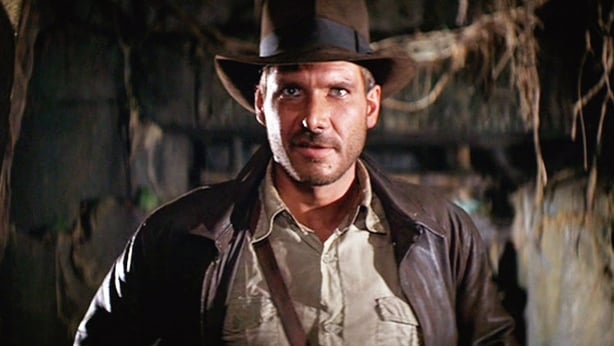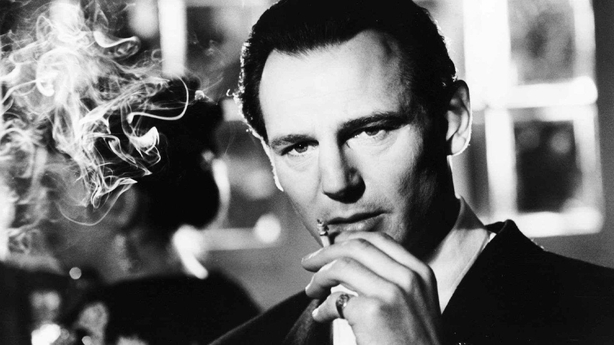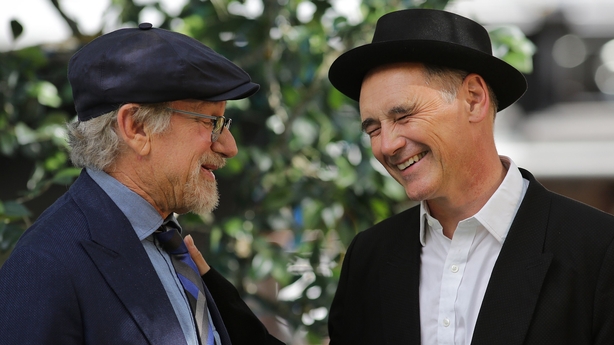For cultural connoisseurs of my generation, there is a certain list of 'old' masters that had a huge baring on our lives, almost from day one. It can vary from person to person, but all would more than likely contain the following names: Walt Disney, George Lucas, Jim Henson, Chuck Jones and Steven Spielberg.
Steven Spielberg, the youngest of that gang of five, and its only member still working, can be labeled a lot of things, even into his seventies - old is certainly not one of them. You just have to look at his newest work, Ready Player One, a frenetic (and highly entertaining) adaption of novelist Ernest Cline's high-tech love letter to pop culture, to see that this is a director who has no intention of vacating his position on the frontline of Hollywood film making. As the father of the modern blockbuster, his influence has been profound, both as a producer and director.
One of the many things the past had going for it was its lack of internet, so our influences and distractions were far more communal, even when video tape came along. In the mid 1980's we had naughty pirate tapes of Back To The Future and The Goonies (both Spielberg productions) in our house, which we cycled through endlessly. Those entire films, dialog and all, became the soundtrack to my mid-teens in Cabra. It didn't stop us from going to see them in the cinema proper, either. In fact, those tapes just encouraged us to go to the pictures more. And the man didn't even direct those films.

He did direct Raiders Of The Lost Ark and E.T. though, a couple of years previously. E.T. was the first ever pirate video we got our hands on. It's a film I both admire and wept profusely over, but I'm not in love with. Probably because of all those hours spent crying. I'm just remembering now seeing E.T. lying near death in the forest, and looking over at my mum for solace, only to see her bawling her eyes out. I caught it on TV last year, after decades of estrangement. I had to turn if off before that scene for fear of blubbing in front of my partner. in 1982 E.T. did for Steve's career what Psycho did for Hitchcock's, cemented him as an icon and made his name synonymous with cinema.
My first great communal experience of family cinema viewing was not one of tears, however, but screams. Yes, I'm talking about the first ever screening of Jaws on RTÉ. I can't put my finger on the exact year - does anybody out there remember? - but I do remember we were all in our pajamas, my brother and sisters. And we all screamed like banshees when Roy Scheider, so unexpectedly, looked that shark in the eye for the first time. It’s still a genius reveal - having been lulled to expect the shark, fin only, accompanied by its unforgettable John Williams theme. I was too young to have experienced Jaws in a picture-house. But many years later my future cinema alma-matter, The Screen on D'Olier Street, programmed it and I finally got to experience Amity Island on a huge summer canvas. Running then, down O'Connell Street to catch the eight o'clock show of Jurassic Park at the Carlton, which had just opened that day.

Though millions of years old, you'd be forgiven thinking Steve invented dinosaurs in 1993 when Jurassic Park first came out, such has been that movie's influence - it practically created its own genre, both in cinema and TV. There's even another in the series due out this summer. But then that same year came Schindler's List. And a whole new mature chapter in Steve's filmography began, in earnest, when he finally won a much-deserved Oscar for his adaption of Thomas Keneally's telling of the true-life harrowing Holocaust tale. Another genre was reinvented when four years later, as myself and several hundred other grown men tried not to cry as we stumbled out of the dark at the Saving Private Ryan press show at the Savoy. World War Two was not some black and white movie memory any more. History breathed and bled all over the screen like never before. (If ever there was a 'robbed' best picture Oscar, it was Spielberg's loss to Harvey Weinstein and Shakespeare In Love the following year). His TV follow up, Band Of Brothers, remains for me some of the most moving storytelling I've ever seen.
Throughout the 2000s, inbetween his genre entries, some more memorable (Minority Report) than others (War Of The Worlds), came another of his masterpieces, Munich. Again, a true-life story, this time of the massacre of Israeli athletes at the 1972 Olympics and the Mossad operation to track down the killers that followed. If one is to go merely by box office numbers, this was one of his lowest-grossing films, at least in the US. But it is superlative film making that has only gotten more impressive with time - give it another look. We all have our issues with the results when he returned to Indiana Jones in 2008, and I suspect he did too. His craft remained absolutely faultless, but his heart didn't seem to be quite in it.

For much of the decade following, Spielberg's company has continued to produce giant robot movies (he produced the Transformers series) and dinosaur sequels, garnering huge success and a whole new generation of transfixed viewers. As a director, he has primarily devoted himself to the pages of American history, with Lincoln winning Daniel Day Lewis his third Oscar, cold war thriller Bridge Of Spies winning Mark Rylance his first, and in the year just gone, The Post celebrating the importance of a free press in our era of fake news.
I just couldn't picture cinema without Steven Spielberg. Or the potential of another Steven Spielberg film. Whatever his chosen subject, you are absolutely guaranteed to be engaged, be it childhood fantasy or historical epic. Some might still call him a mere craftsman. But its craft elevated to art. He's in Wicklow at the moment, producing a horror film. Then it's back to Indiana Jones, for one final crack of the bullwhip.
Dang. What's next? A musical? "Steven Spielberg remaking West Side Story with a Latino cast", says Variety. Of course he is. And he still shoots on film stock. Of course he does. Long may he keep those cameras rolling.


